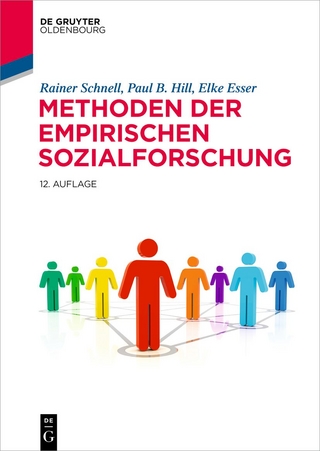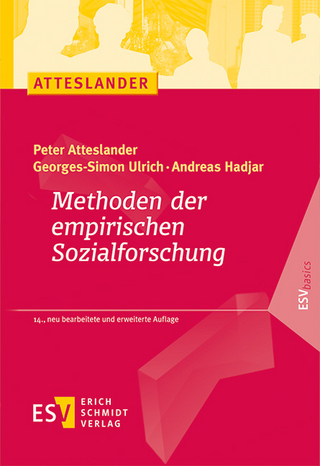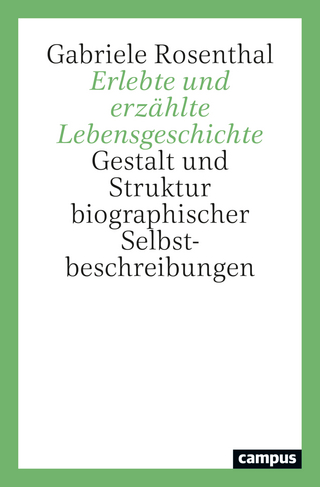
Research Methods in Indigenous Contexts
Springer International Publishing (Verlag)
978-3-319-72774-5 (ISBN)
This forward-looking resource offers readers a modern contextual framework for conducting social science research with indigenous peoples. Foundational chapters summarize current UN-based standards for indigenous rights and autonomy, with their implications for research practice. Coverage goes on to detail minimally-invasive data-gathering methods, survey current training and competency issues, and consider the scientist's role in research, particularly as a product of his/her own cultural background. From these guidelines and findings, students and professionals have a robust base for carrying out indigenous research that is valid and reliable as well as respectful and ethical.
Among the topics covered:· Cultural theories and cultural dominance.
· The legal framework of research in indigenous contexts.
· The role of language within indigenous peoples' cultural rights.
· Methodology: how to optimally collect data in the field.
· Researchers' influence and philosophy of science.· Learning how to prepare research in indigenous contexts.
Research Methods in Indigenous Contexts is an important reference benefitting a wide audience, including students and researchers in the social sciences, humanities, and psychology; decision-makers of NGOs and GOs that act with regard to humanitarian aid, for tourism projects, or any other contingency with indigenous contexts; and policymakers interested in the aspects of human activity upon which indigenous cultural concerns are based.
Prof. Dr. Arnold Groh has conducted field research in indigenous contexts since 1987, and since 2001, he has trained students for this purpose. He has headed excursions to indigenous peoples in Indonesia (Borneo: Punan; West Papua: Dani), India (Soliga), Latin America (Panama: Emberá; Peru: Yagua), Laos (Akha; Lanten), and in several African countries (Cameroon: Bagyeli; Uganda: Batwa; South Africa: Venda; Ethiopia: Hamer; Benin/Togo: Somba/Tamberma; Senegal: Bassari; Eastern Congo Basin: Bambuti). He heads the reseach institution Structual Analysis of Cultural Systems, which is in Special Consultative Status with the United Nations Economical and Social Council. Arnold Groh received his PhD in Psychology from the University of Bielefeld, he has been teaching as a Visiting Professor at the University of the Arts, Berlin, and he did his habilitation at the Technical University of Berlin, where he is currently an Associate Professor.
1. Introduction.- 1.1 Indigenous Contexts.- 1.1.1 Transgenerational Traumata.- 1.2 Cultural Theories and Cultural Dominance.- 1.3 Transcultural perspectives and conceptualisations.- 1.4 Synthesis and dominance - the mechanisms of change.- 2. The legal framework of research in indigenous contexts.- 2.1 Historical aspects.- 2.2 Acknowledgement of indigenous identity.- 2.3 Right to self-determination.- 2.4 Protection of culture.- 2.4.1 The Role of Language within Indigenous Peoples' Cultural Rights.- 2.4.2 Indigenous Culture and Intellectual Property.- 2.5 Revitalisation of culture.- 2.6 Cultural autonomy in education and lifestyle.- 2.7 Reflection of culture in media.- 2.8 Land rights.- 2.8.1 Protection of territories.- 2.8.2 Land use.- 2.8.3 Mitigation of adverse impact.- 2.8.4 Right to redress and compensation.- 2.8.5 Indigenous cultures and borders.- 3. Methodology - how to optimally collect data in the fields.- 3.1 History of transcultural field encounters.- 3.2 Field encounter as quasi-experimentation.- 3.3 Researchers' influence and philosophy of science.- 3.3.1 Vulnerability and resilience.- 3.4 Epistemology.- 3.4.1 Qualitative and quantitative methods.- 3.4.2 Validity.- 3.4.3 Reliability.- 3.4.4 Objectivity.- 3.4.5 Ethical aspects.- 3.5 Minimally-invasive techniques.- 3.5.1 Total immersion.- 3.5.2 Rescue work.- 4. Field research in indigenous contexts.- 4.1 The scientist as a psychological being.- 4.1.1 Researchers and their culture of origin.- 4.1.2 Rationality and irrationality.- 4.2 Meta-perspectives.- 4.3 Transcultural competency.- 4.4 Education and training.- 4.4.1 Learning how to prepare research in indigenous contexts.- 4.5 Culturally sustainable field research.- 4.5.1 Practical aspects.- 4.5.2 Being prepared for tropical diseases.- Epilogue.
| Erscheinungsdatum | 22.02.2018 |
|---|---|
| Zusatzinfo | VIII, 236 p. 5 illus. |
| Verlagsort | Cham |
| Sprache | englisch |
| Maße | 155 x 235 mm |
| Gewicht | 534 g |
| Themenwelt | Geisteswissenschaften ► Psychologie |
| Sozialwissenschaften ► Ethnologie | |
| Sozialwissenschaften ► Soziologie ► Empirische Sozialforschung | |
| Schlagworte | Culturally sustainable field research • cultural theories and cultural dominance • ethnography • History of transcultural field encounters • legal framework of research in indigenous contexts • Researchers' influence and philosophy of science • Researchers’ influence and philosophy of science • Right to Self-Determination • Structural Analysis of Cultural Systems • The scientist as a psychological being • total immersion in indigenous societies • United Nations Declaration on the Rights of Indige • United Nations Declaration on the Rights of Indigenous Peoples |
| ISBN-10 | 3-319-72774-5 / 3319727745 |
| ISBN-13 | 978-3-319-72774-5 / 9783319727745 |
| Zustand | Neuware |
| Informationen gemäß Produktsicherheitsverordnung (GPSR) | |
| Haben Sie eine Frage zum Produkt? |
aus dem Bereich


